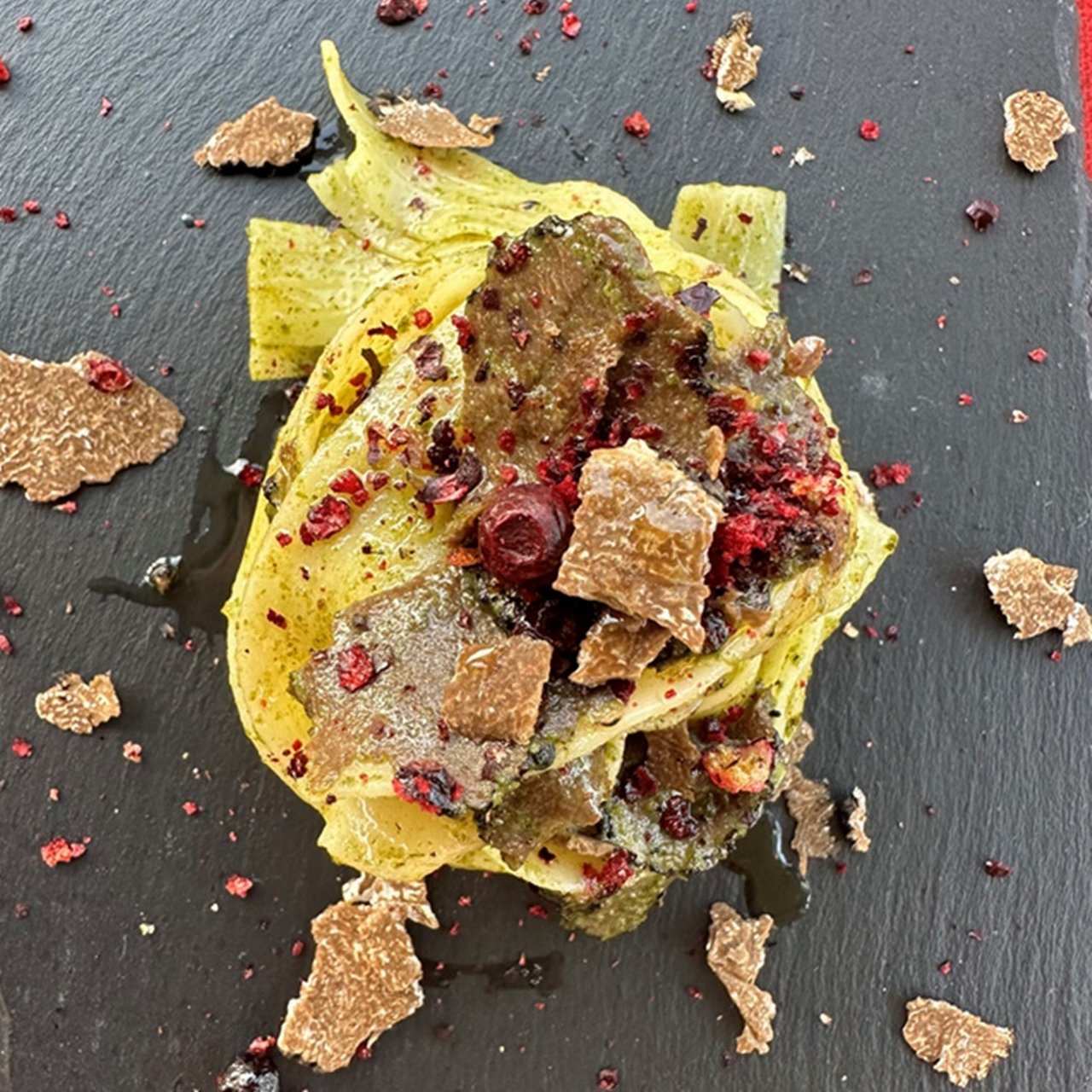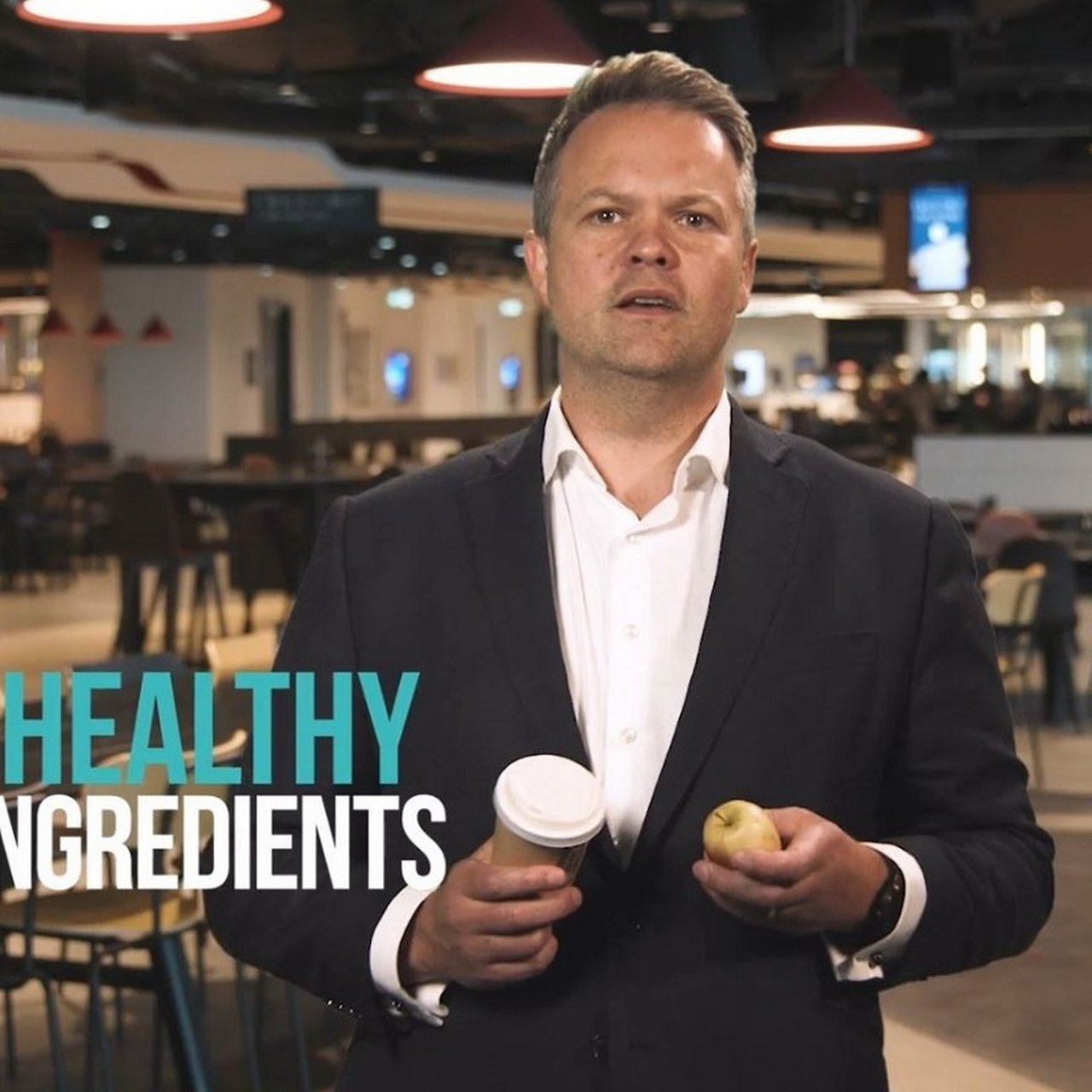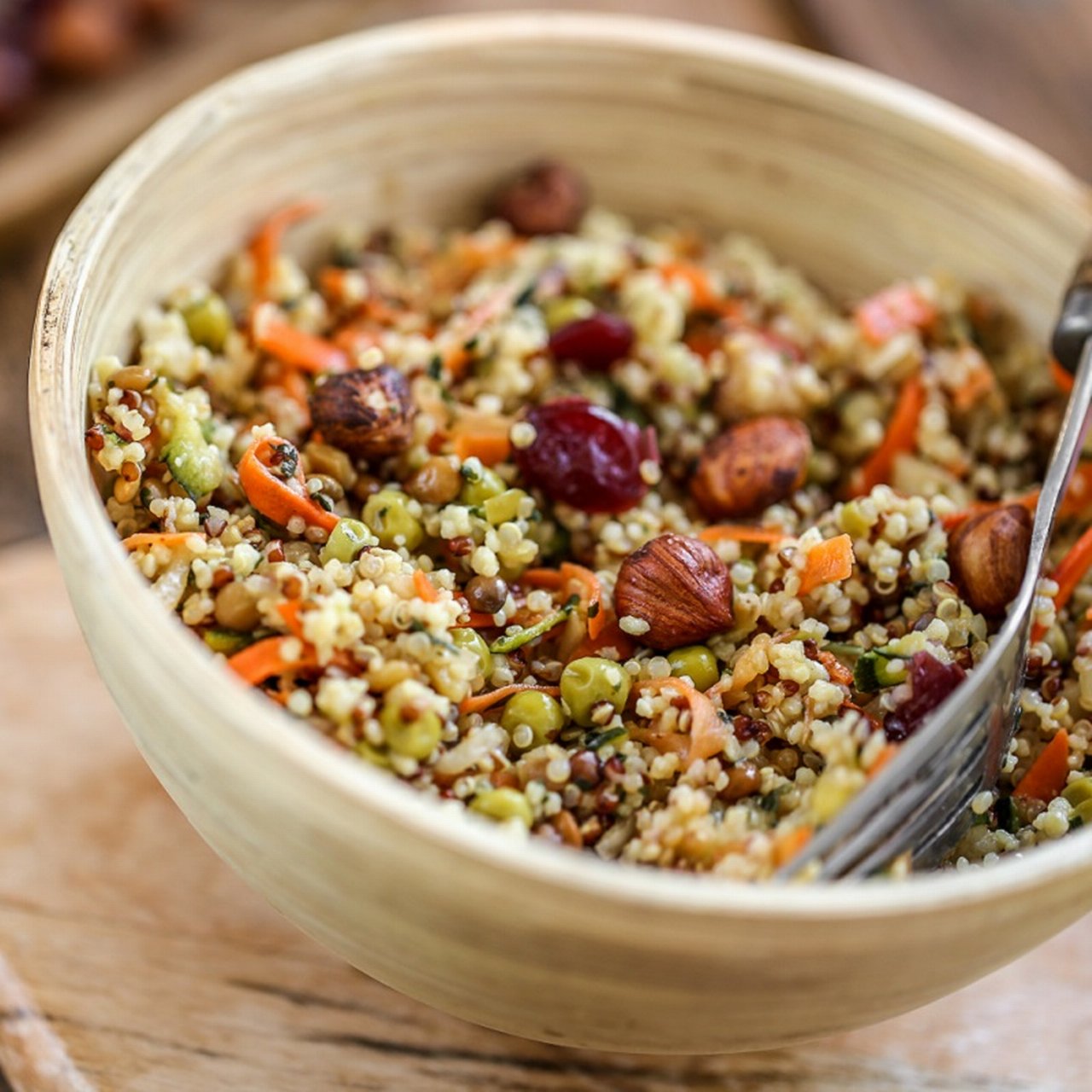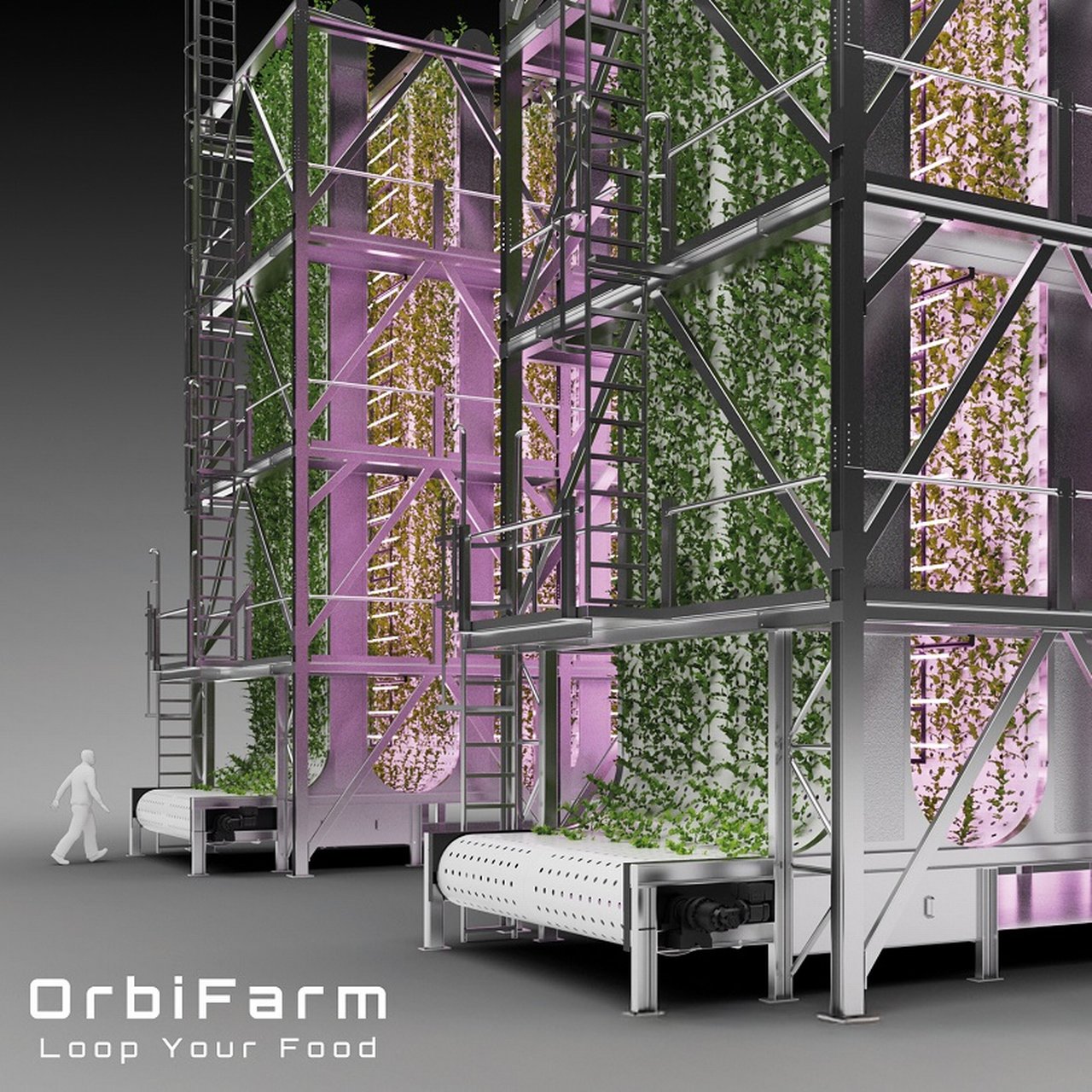
Grows even in the desert
Veganz founder Jan Bredack is on a mission to feed the world by producing plant-based protein on an industrial scale. This vision will become reality with OrbiFarm®. Here’s how.
In a gigantic hall the size of about five football pitches and a usable area of 500,000 square metres, green tufts – pea shoots – move up and down on vertical conveyor belts, each 12 metres tall . Their speed never changing, they pass by artificial light sources, whose spectra are precisely adjusted to their needs. Sprayed from behind with a nutrient solution of phosphorus, nitrogen and potassium, the pea shoots grow under perfect conditions – no bacteria, no pesticides, no predators.
They don’t even need soil to grow and during the 60 days it takes until they are ready for harvesting, watering them only uses five percent of the usual water requirement is used to allow them to thrive to maturity in the gigantic halls of around 35,000 square meters.
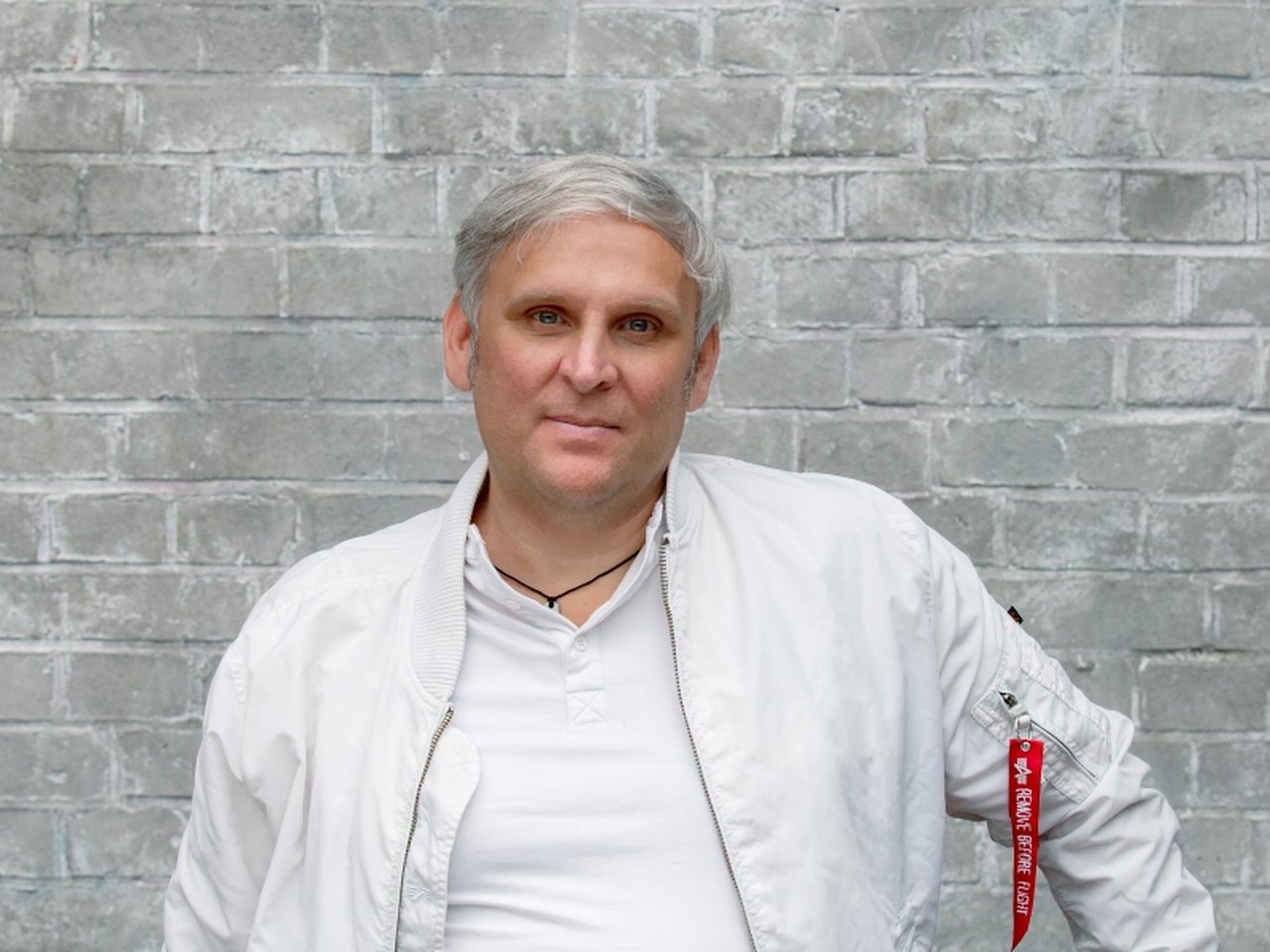
Industrial-scale vegan protein
“Loop your food” was the title of the 48-second video Jan Bredack posted on his LinkedIn channel in April 2025 to announce the founding of OrbiFarm®, which – he says – is nothing less than a revolution in food production. It will allow the industrial production of plant-based proteins, worldwide – in cooperation with the Fraunhofer Institute for Molecular Biology and Applied Ecology, as well as the process equipment and machinery manufacturer Körber Technologies.
OrbiFarm® means being able to cultivate plants industrially. Even where nothing else grows, whether in the middle of the desert or on an ice shelf.
So far, Bredack's gigantic farms still only exist as digital designs. His plan is about to be put into action, though. Once the current pilot phase is completed, the first projects for the production of pea proteins on an industrial scale are set to launch in Qatar, Ivory Coast, Bahrain and Germany.
"Global food security will be a major concern for the world in the future – not only in Western civilisation," Bredack says. "Our idea puts us right at the root of value creation in the food industry, allowing us to help everyone, regardless of whether they eat meat or a plant-based diet."
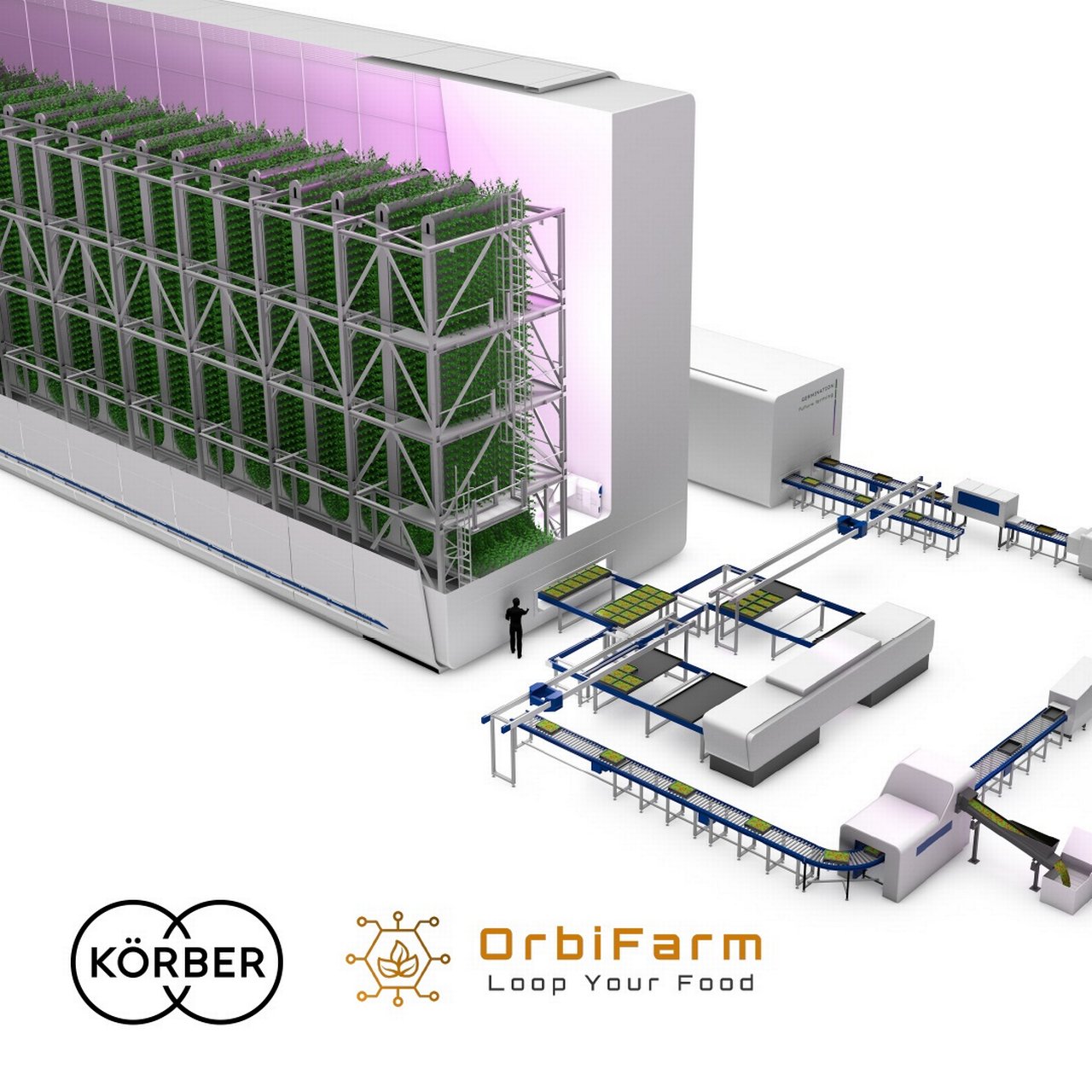

At the root of value creation
Veganz was founded in 2009 as a Berlin supermarket chain for vegan products and has since evolved to include in-house production of vegan products such as resource-saving oat drinks from the printer or meat alternatives from pea protein for retail and gastronomy. Just as he has always done, Bredack is once again focusing on innovation and will soon be a global producer of plant-based proteins as an industrial raw material.
What makes the 53-year-old so confident that he can successfully put his latest expansion plans in action?
One reason is the reliably high profitability of his version of vertical indoor farming compared to conventional agriculture. Test runs performed by the Fraunhofer Institute showed a 36-fold higher yield; to optimised growing conditions make it possible to harvest six times a year.
Robots harvest the pea shoots, which are then processed into pea protein. In addition, industrial customers can even use the complete biomass of the plant – including what might be considered plant waste – to further process it into protein raw materials. "There's simply nothing left at the end," says Bredack. Even the seed required for the pea plants is, according to Bredack, "much less complex than anything on the market today".
One farm feeds about 250,000 people
Another reason for Bredack’s confidence is the expected sharp increase in demand for these raw materials in the near future. Consulting firm "Future Market Insights" predicts that the sales volume of plant-based proteins will rise from 17 billion US dollars in 2024 to 600 billion US dollars in 2035. The reasons: materially higher demand for animal feed, changing eating habits and an ever growing world population.
At the same time, however, yields from conventional agriculture are falling; the amount of available arable land is in continuous decline and the proportion of infertile soils and poor harvests due to difficult climatic conditions is steadily increasing. "Companies located in the Arab world have already bought land in Serbia, Hungary, Romania, and the Danube Delta to grow soybeans and peas," says Bredack. "They then import the harvest, make a protein mass from it and feed it to their animals."
Bredack's answer to this development is OrbiFarm®. "You can feed 250,000 people with one of our farms – or provide enough feed to keep an animal farm self-sufficient."
To supply the same number of people with beef, you need an area of approximately 405 million square meters – that’s more than 11,000 times more than one of Bredack's OrbiFarm® plants. And then there’s the impact on the environment: you need about 15,000 litres of water to produce just one kilo of beef and it causes 27 kg of CO₂ emissions. For one kilo of pea protein, on the other hand, it’s only about 500 liters of water and 4 kg of CO₂ emissions.
Other companies won't be able to do without us – they simply can't produce as efficiently as we can.
Attractive alternatives for vegan food
Those figures alone are enough to demonstrate the potential for plant-based proteins – also for the catering industry: "The convenience food industry is already beating down our door," says Bredack. What makes Veganz attractive is that their meat alternatives not only do without artificial additives but also without water.
This means the products take up less storage space, have a long shelf life and are very competitive in terms of price. This not only keeps the pure acquisition costs in check for potential customers, but it also simplifies logistics and effort in preparation compared to fresh meat produce. The product is perfect for an industry that must count every euro and is desperately looking for trained personnel.
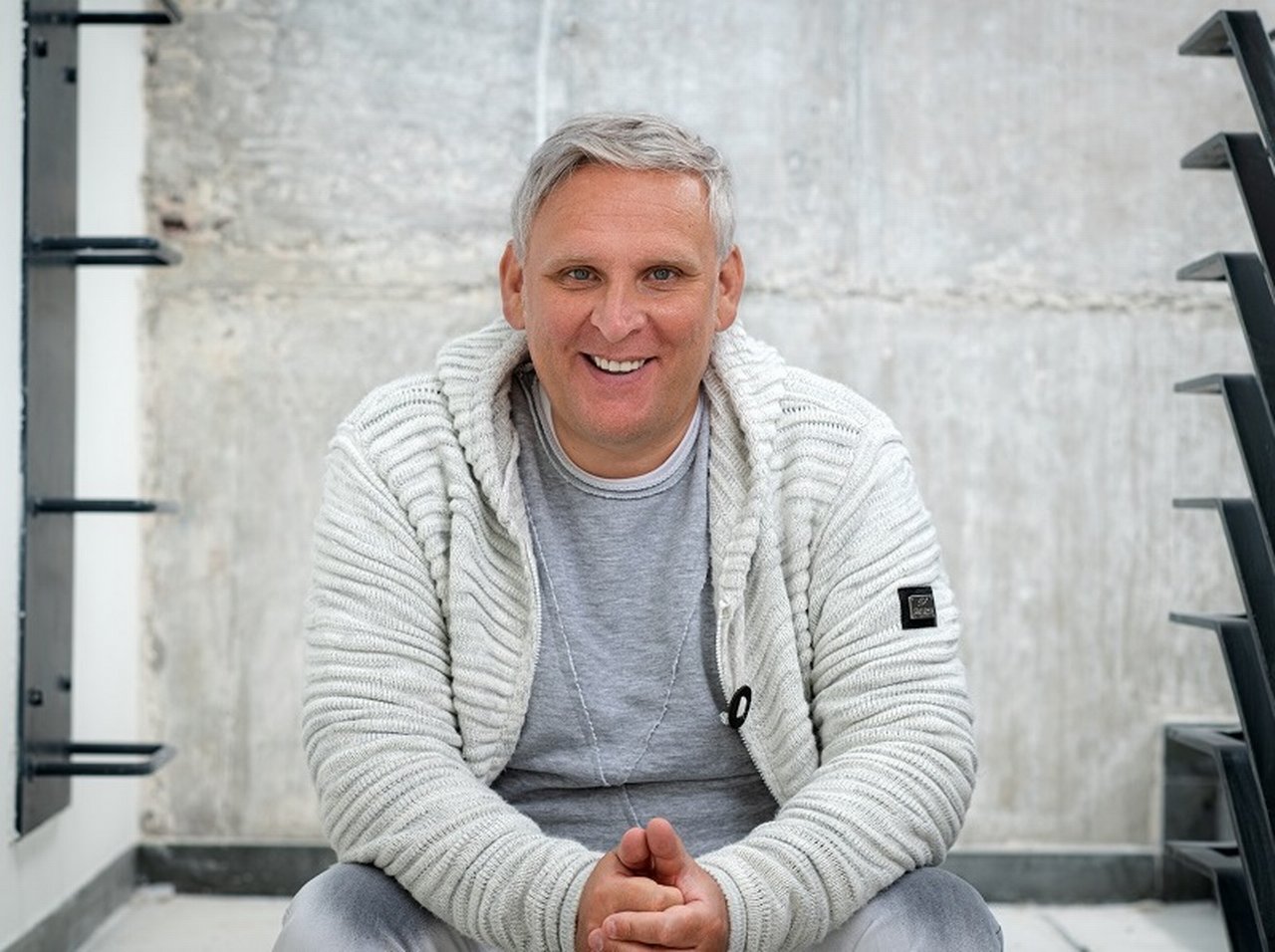
When it comes to Veganz’ success, Bredack is also counting on the international corporations that currently dominate the global market for animal feed and proteins. "In the long term,” he says, “these companies won't be able to do without us either – they simply can't produce as efficiently as we can."
The US Patent Office, at least, is convinced. After several years of back and forth, in spring 2025, the authority approved the last patent which Veganz needs to operate the farms. That also means Bredack's vision is a little closer to becoming reality.
"Trying to convert people to a certain diet doesn't work, I've learned that in the last 15 years," says Bredack. "You have to offer them financially attractive products, then everything points in our favour.
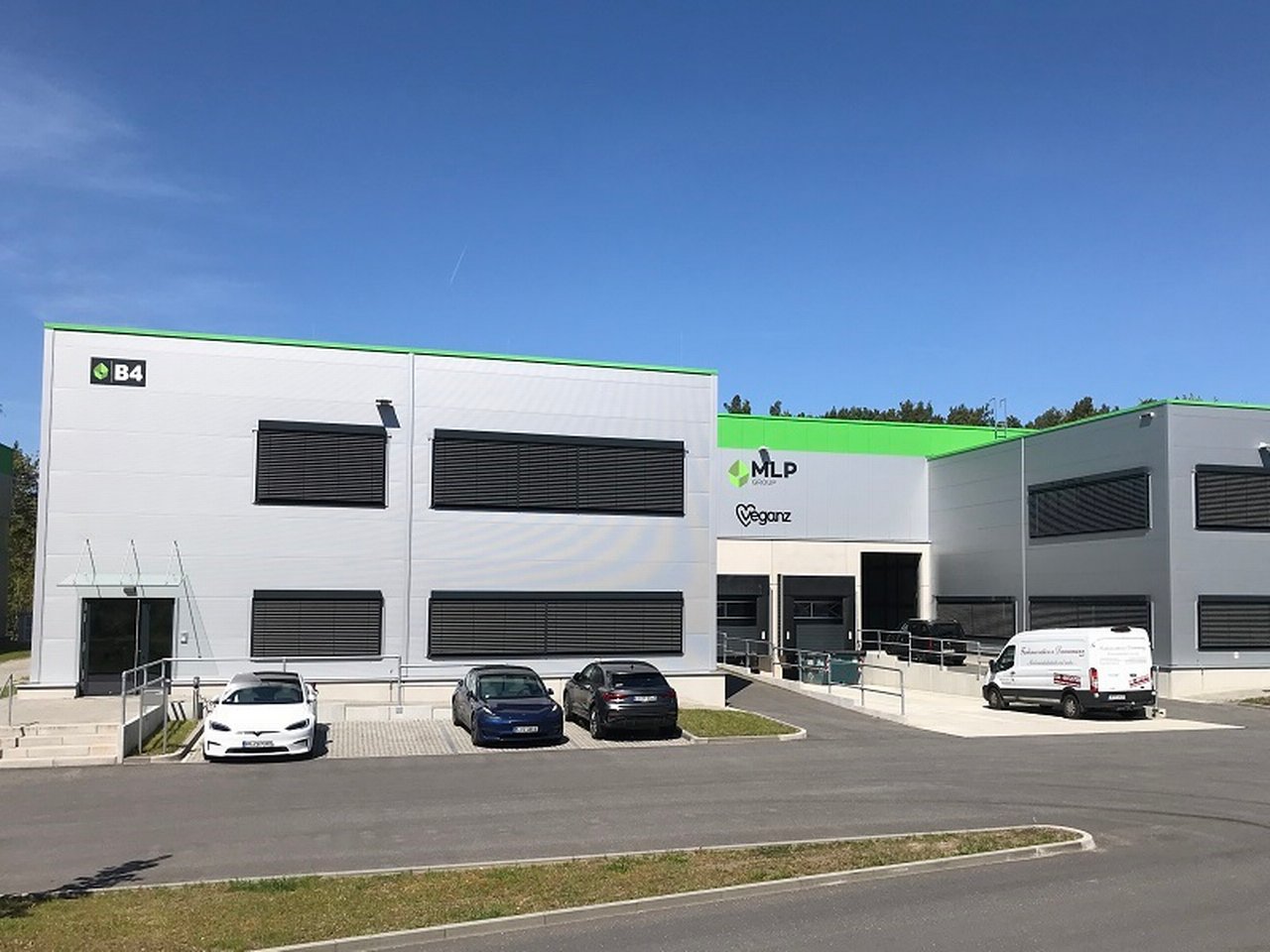
About Veganz
The Veganz Group was founded in Berlin in 2011 and is a pioneer in plant-based foods. From a vegan supermarket, it developed into a leading manufacturer of sustainable vegan products – from snacks to meat and cheese alternatives. Veganz stands for innovation, transparency, and environmental awareness. The products are available throughout Europe. Within the company, OrbiFarm® has been founded, which will also provide the raw materials for its own vegan products.
This page was published in July 2025.
Addendum of November 2025:
Following our interview in April this year, Veganz underwent a change in leadership: Rayan Tegtmeier replaced Jan Bredack as CEO. In addition, the company sold OrbiFarm for 30 million euros plus profit participation to a third-party provider.

Benjamin-Peter Krug
… is enthusiastic about future technologies and their implementation in companies. He tries his hand at cultivating strawberries and tomatoes in his home garden. He is very well aware of how much work and resources go into just one kilogram of tomatoes.
Recommended content
Entrepreneurial Success I Insights
Conscious Consumption Conscious consumption
What really motivates us to eat more consciously: Employees share their thoughts on enjoyment, nutrition and personal changes.
Entrepreneurial Success I Video
Nothing works without water Nothing works without water
Why are some drinks so popular? Deutsche Bank's beverage expert Mitch Collett gives answers in this engaging short video.
Entrepreneurial Success | Short & Sweet
Tik Tok made me do it TikTok made me do it
Five food trends not as good for the planet as you might think: Social media influences food trends that often lead to challenges for local communities and ecosystems.
Tik Tok made me do it Three ways to enjoy responsibly
